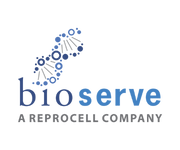CLINICAL DIAGNOSTICS
Inherited/Hereditary Cancers Panel
Inherited/Hereditary Cancers Panel
About 5-10% of cancers are hereditary in nature. In these cancers, an individual inherits a copy of a gene (gene with important role in cancer related pathways) with a mutation from one parent, and a working copy of the same gene from the other parent. The gene with the mutation is also called a “cancer susceptibility gene.” Since this cancer susceptibility gene is inherited, it is found in every cell of the body, but the working copy of the gene keeps each cell working properly. In cases of cancers with autosomal dominant inheritance (like BRCA 1/ 2 related Breast cancer), one defected copy of the gene predisposes the individual at increased cancer risk. In cases where cancer displays autosomal recessive (Bloom Syndrome; BLM gene) pattern, if the working copy of the gene in a cell becomes damaged by a mutation, that cell can lose its growth control and become cancerous. Thus, individuals who inherit a cancer susceptibility gene have a much greater chance for developing certain cancers in their lifetime. However, not everyone with an inherited cancer susceptibility gene will develop cancer.
Advantages of Hereditary Cancer Testing?
- Profiling of >140 genes associated with inherited cancers like Breast, Ovarian, pancreatic, colorectal, prostate, and renal.
- Detect heritable, disease-related gene mutations which indicate predisposition to risk of certain cancers.
- Early detection in close family members for effective management and improved outcomes
Who should consider this testing?
- Individual or close family members of the individual with strong family history of same or various cancers
- variants in other cancer related genes in individuals who have test negative for BRCA 1/ 2
- Or as evaluated by your oncologist
What are the benefits of genetic tests?
- Genetic testing can help in making better medical and lifestyle choices for some women while relieving the anxiety of not understanding their genetic history. With both drugs and prophylactic surgery, you may also decide about prevention.
- Knowledge of genetic mutation in the patient can help in early or timely detection of mutations in close family members.
Why Bioserve - REPROCELL India?
- Clinically relevant improvements and their interpretations and links to drug efficacy.
- Recommendations for targeted therapies or possible resistance mechanisms, and the prognosis and current clinical trials.
- High precision reporting with accuracy by ensuring all the quality requirements.
- Quicker Turnaround time, Competitive pricing and detailed clinical interpretations and links to drug response/efficacy wherever possible.
- The test has been validated in house and offers coverage range of 500-1000X.
Genes covered in this Panel
LIG4 PRF1 CDK4 CDKN1B CDH1 FH SBDS ERCC5 SDHC SPINK1 FANCE RNF168 SMARCB1 ASCC1 SUFU NBN WT1 CACNA1D XPA MLH1 KDR TP53 NTRK1 MLH3 PTEN PDGFRB MITF HNF1A KLLN FANCL APC SMAD4 CTHRC1 STK11 MYH8 MEN1 FANCA SETBP1 ELAC2 CDKN2A EXT1 ERCC3 PTCH1 HNF1B RECQL4 RAD51D MET BLM ATR SDHB MTAP MAX RNASEL FANCI SH2D1A BRCA2 NF2 TSC2 FANCF FLCN ERCC4 AIP BUB1 KIT PRKAR1A BRCA1 EXT2 RAD50 AKT1 RSPO1 GPC3 HOXB13 ANTXR1 BMPR1A NCOA4 PALLD CHEK2 MUTYH TERT FANCC BARD1 TSC1 TMEM127 SMARCE1 BRIP1 PTPN11 RET XPC MRE11A RUNX1 SLX4 SDHD NF1 PALB2 PPM1D CDC73 RB1 FANCB SPRED1 RAD51C SDHA DDB2 VHL WRN BAP1 EGFR MSH2 EPCAM CYLD TGFBR1 DICER1 CBL PRSS1 RHBDF2 SDHAF2 AXIN2 PTCH2 ERCC2 BUB1B PHOX2B FANCG PIK3CA FANCD2 ALK POLD1 MSR1 PMS2 MSH6 WAS ATM POLE POLH XRCC2 FANCM CDK12 PPP2R2A CHEK1 RAD51L COKN2A COH1 DNA2 RAD51B RAD54L MRE11 RAD51 BRAF ERBB2 KRAS NRAS MAP2K1 MTOR ROS1
Specimen Requirements
Blood in EDTA tubes
Our Other Panels!
We offer several cancer panels depending upon the needs of the Oncologists, these include..
BRCA Extended Panel
Profiling of 15 genes associated with hereditary Breast and Ovarian cancer, pancreatic and prostate cancer
Lung RNA Fusion Panel
Lung RNA fusion panel for detecting gene fusions in major driver genes
HRR Gene Panel
Profiling of 30 genes associated with inherited cancers like Breast, Ovarian, pancreatic, colorectal, prostate and genes involved in Homologous recombination repair pathway
Comprehensive Cancer Panel
Examines 409 tumour suppressor genes and oncogenes frequently mutated in cancer.
